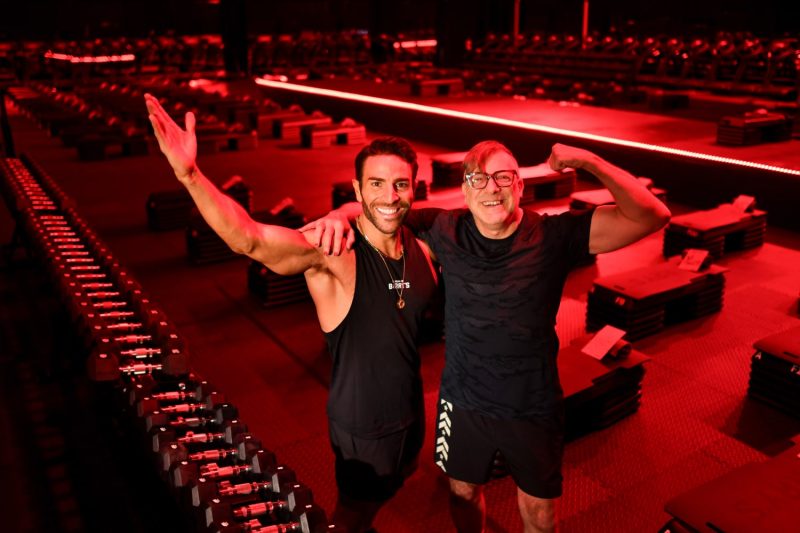
Barry’s Bootcamp announces new investment as others exit boutique fitness category
As the boutique fitness sector starts to buckle, Barry’s Bootcamp on Monday announced new investment from Princeton Equity Group.
“The reason why this [boutique fitness] works for Barry’s is that our positioning in the marketplace is premium,” said Joey Gonzalez, Barry’s co-CEO, in an interview with CNBC. “We always want to minimize risks to any sort of brand dilution, and we only ever want to elevate the Barry’s experience.”
Gonzalez said this funding round will be focused on investing in client experience and brand positioning in a highly saturated industry. Barry’s offers high-intensity running, lifting and training classes in its trademark red-lit rooms.
Barry’s has 89 studios globally that saw more than 7 million visits in 2024.
Princeton is a franchisor and consumer services-focused private equity firm with $1.2 billion in assets under management. It has invested in other wellness brands such as spa chain Massage Envy and athletic training facility D1 Training.
The size of the investment was not disclosed.
The fresh capital for Barry’s adds to a list of private equity investments dating back nearly two decades from firms including LightBay Capital and North Castle Partners.
Gonzalez said Barry’s will use the investment in part to fund expansion in 12 U.S. cities this year, including Charleston, South Carolina; Hoboken, New Jersey; and Salt Lake City, as well as locations in Madrid, Athens and Dublin.
″[This partnership] is enabling us to consolidate our operations in the UK and Canada,” Gonzalez said. “We will now be overseeing operations in these countries where we can foster a closely knit community and create efficiencies.”
The broader global boutique fitness studio market was valued at nearly $48 billion in 2023 and is expected to grow to $86 billion in 2030, according to estimates from Research and Markets. Still, several high-profile brands have struggled to grow their customer base.
Xponential Fitness, a franchisor of health and wellness brands, divested from two struggling boutique chains — Stride Fitness and Row House — last year.
Jefferies analyst Randal Konik cited industry headwinds including macroeconomic concerns that could cause a pullback in consumer spending, and said fitness has proven to be more need-based with more people prioritizing health and wellness.
“Tailwinds will be the focus on health and wellness coming out of Covid,” Konik said, “as well as a move towards strength training, [which] has lifted demand for all types of fitness classes and gym membership.”
Piper Sandler analyst Korinne Wolfmeyer cited “uncertainty around unit growth” at Xponential as one of the main reasons to stay on the sidelines of the stock.
Gonzalez said his company is bucking the trend.
“I think of Barry’s as one of the originals, and a very back-to-basics approach to fitness with efficacy at the heart,” said Gonzalez. “What Barry’s has really done is stick to our core competency: fitness experience, immersive experience, member experience.”
